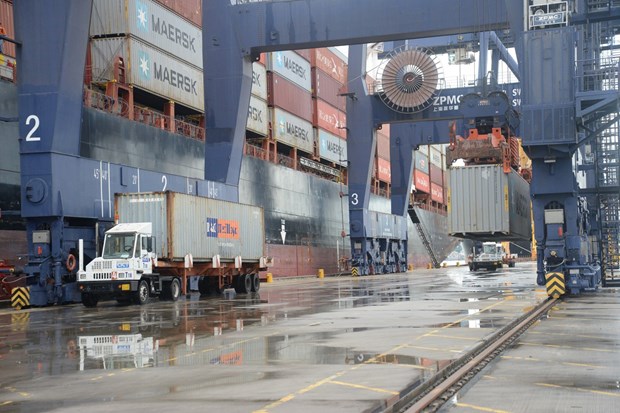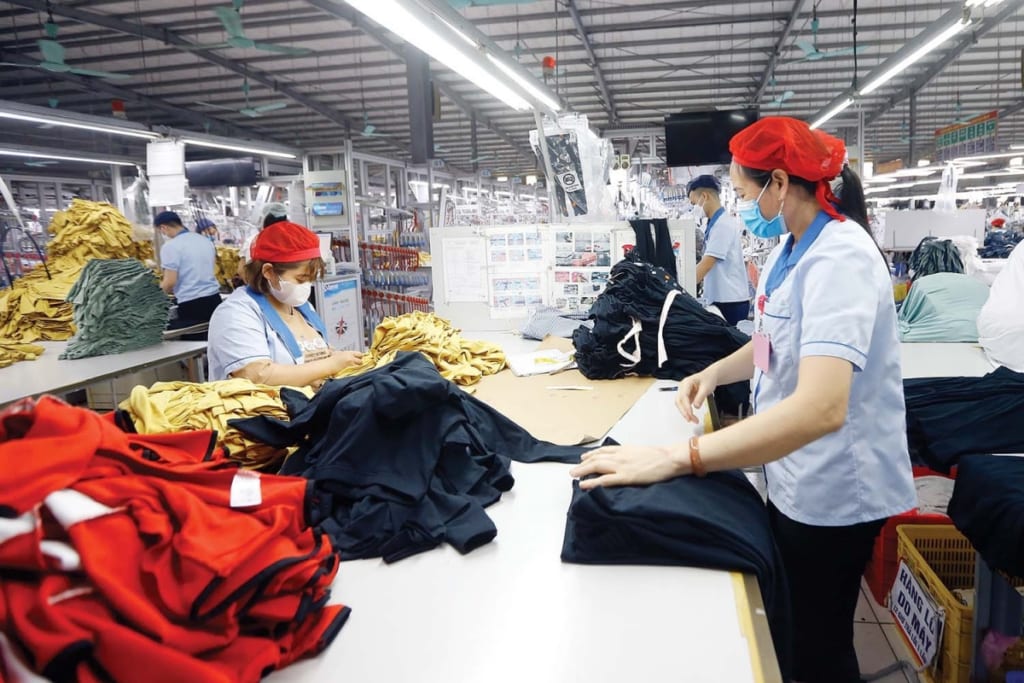
Vietnam, a Southeast Asian country known for its rich culture and scenic landscapes, is also home to a large workforce that plays a significant role in various industries both domestically and abroad. Vietnamese workers have gained prominence for their hard work, adaptability, and strong work ethic. In this article, we will explore the experiences and contributions of Vietnamese workers in different sectors, the challenges they face, and the initiatives undertaken by the government to protect their rights.
Introduction
Vietnam has experienced significant economic growth over the past few decades, leading to improvements in living standards and a rise in employment opportunities. However, despite the positive developments, many Vietnamese workers seek employment overseas to support their families or find better-paying jobs.
Overview of Vietnamese Workers
Vietnamese workers are known for their dedication, resilience, and commitment to their work. They are often highly skilled, possessing technical expertise in fields such as engineering, information technology, and manufacturing. Additionally, they possess a strong sense of community and family values, which contributes to their work ethic and reliability.
Vietnamese Workers Abroad
Migration trends
Overseas employment has become a common phenomenon among Vietnamese workers. They seek opportunities abroad due to factors such as higher wages, better working conditions, and the desire to acquire new skills and experiences. The migration trend has been fueled by the liberalization of international labor markets and the globalization of economies.
Popular destinations
Vietnamese workers can be found in various countries around the world, but there are some popular destinations that attract a significant number of workers. These include countries in Southeast Asia, such as Malaysia, Singapore, and Thailand, as well as other regions like South Korea, Japan, and the Middle East.
Motivations for working abroad
The motivations for Vietnamese workers to seek employment abroad are multifaceted. They often aim to support their families financially, improve their living standards, and gain valuable international work experience. Moreover, the remittances sent back to Vietnam by overseas workers contribute to the country’s economy.
Challenges faced by Vietnamese workers abroad
Working abroad presents its own set of challenges for Vietnamese workers. They may encounter language barriers, cultural differences, discrimination, exploitation, and difficulties in accessing healthcare and legal protection. These challenges highlight the importance of government initiatives to safeguard the rights and well-being of Vietnamese workers.
Vietnamese Workers in the Agricultural Sector
Agriculture plays a vital role in Vietnam’s economy, employing a significant portion of the workforce. Vietnamese workers contribute to the agricultural sector by engaging in various activities such as farming, fishing, and forestry.
Importance of agriculture in Vietnam
Agriculture is the backbone of Vietnam’s economy, providing employment opportunities for millions of people and contributing to the country’s food security. It also serves as a source of income for rural communities and contributes to foreign exchange earnings through exports.
Role of Vietnamese workers in the agricultural sector
Vietnamese workers actively participate in agricultural activities, employing traditional farming techniques as well as adopting modern methods. They play a crucial role in cultivating crops, tending to livestock, and maintaining the agricultural infrastructure.
Impact of mechanization on Vietnamese workers
While the agricultural sector in Vietnam has witnessed advancements in mechanization, many tasks still require manual labor. However, the increasing use of machinery and automation poses a potential threat to the livelihoods of Vietnamese workers, as it reduces the demand for manual labor in certain areas of agriculture.
Vietnamese Workers in the Manufacturing Industry
Vietnam’s manufacturing industry has experienced rapid growth in recent years, attracting both domestic and foreign investments. This sector has become a significant source of employment for Vietnamese workers.
Growth of manufacturing sector in Vietnam
Vietnam’s manufacturing sector has flourished due to factors such as low labor costs, favorable business policies, and an abundant workforce. The country has emerged as an attractive destination for industries such as textiles, electronics, automobile manufacturing, and more.
Labor-intensive industries
Many manufacturing industries in Vietnam rely heavily on manual labor, making them labor-intensive. The workers contribute to these industries by assembling products, operating machinery, and ensuring the smooth production process.
Exploitation and labor rights issues
Although the manufacturing industry provides employment opportunities, there are concerns regarding exploitation and labor rights violations. Vietnamese workers may face long working hours, low wages, inadequate safety measures, and limited access to social protection. These issues highlight the importance of promoting fair labor practices and improving working conditions.
Vietnamese Workers in the Service Sector
The service sector in Vietnam has been expanding rapidly, driven by the country’s growing middle class and increasing tourism. These workers are actively involved in various service-related industries.
Rising demand for skilled workers
With the rising living standards and demand for high-quality services in Vietnam, there is a growing need for skilled workers. Industries such as hospitality, tourism, healthcare, and information technology offer promising employment opportunities for Vietnamese workers with the right skill sets.
Employment opportunities in tourism and hospitality
Vietnam’s natural beauty, historical sites, and vibrant culture have attracted a significant number of tourists in recent years. Vietnamese workers contribute to the tourism and hospitality sectors by working in hotels, restaurants, tour agencies, and other related businesses.
Challenges and opportunities in the service sector
While the service sector offers diverse employment opportunities, there are challenges that these workers may face. These include the need for continuous skills development, language proficiency, and adapting to the changing demands of the industry. The government and private sector collaborations are crucial in addressing these challenges and creating a supportive environment for workers.
Government Initiatives and Protections for Vietnamese Workers
The Vietnamese government recognizes the importance of protecting the rights and welfare of its workers, both domestically and abroad. Various initiatives and regulations have been implemented to safeguard the interests of their workers.
Labor laws and regulations
Vietnam has established labor laws and regulations to ensure fair employment practices, minimum wage standards, occupational safety, and protection against discrimination. These laws serve as a framework for employers and employees and contribute to a more equitable work environment.
Overseas Employment Centers
To facilitate the overseas employment process and protect Vietnamese workers abroad, the government has set up Overseas Employment Centers. These centers provide support in terms of recruitment, training, legal assistance, and access to information for prospective and current overseas workers.
Social protection programs
The government has implemented social protection programs to provide assistance and support to the workers in need. These programs include healthcare coverage, insurance, financial support for returning workers, and reintegration assistance.
Conclusion
Vietnamese workers play a crucial role in various sectors, both domestically and internationally. Their dedication, skills, and resilience contribute to the growth of Vietnam’s economy. However, challenges such as exploitation, labor rights violations, and the need for continuous skills development persist. The government’s efforts to protect workers’ rights and provide support services are essential in ensuring the well-being of their workers.
FAQs
- What is the current unemployment rate in Vietnam?
- How does the government support the reintegration of returning Vietnamese workers?
- Are these workers vulnerable to human trafficking?
- What skills are in high demand for Vietnamese workers?
- How do these workers contribute to the economy?
Follow our channel for more updated news of Vietnamese Labor Market



